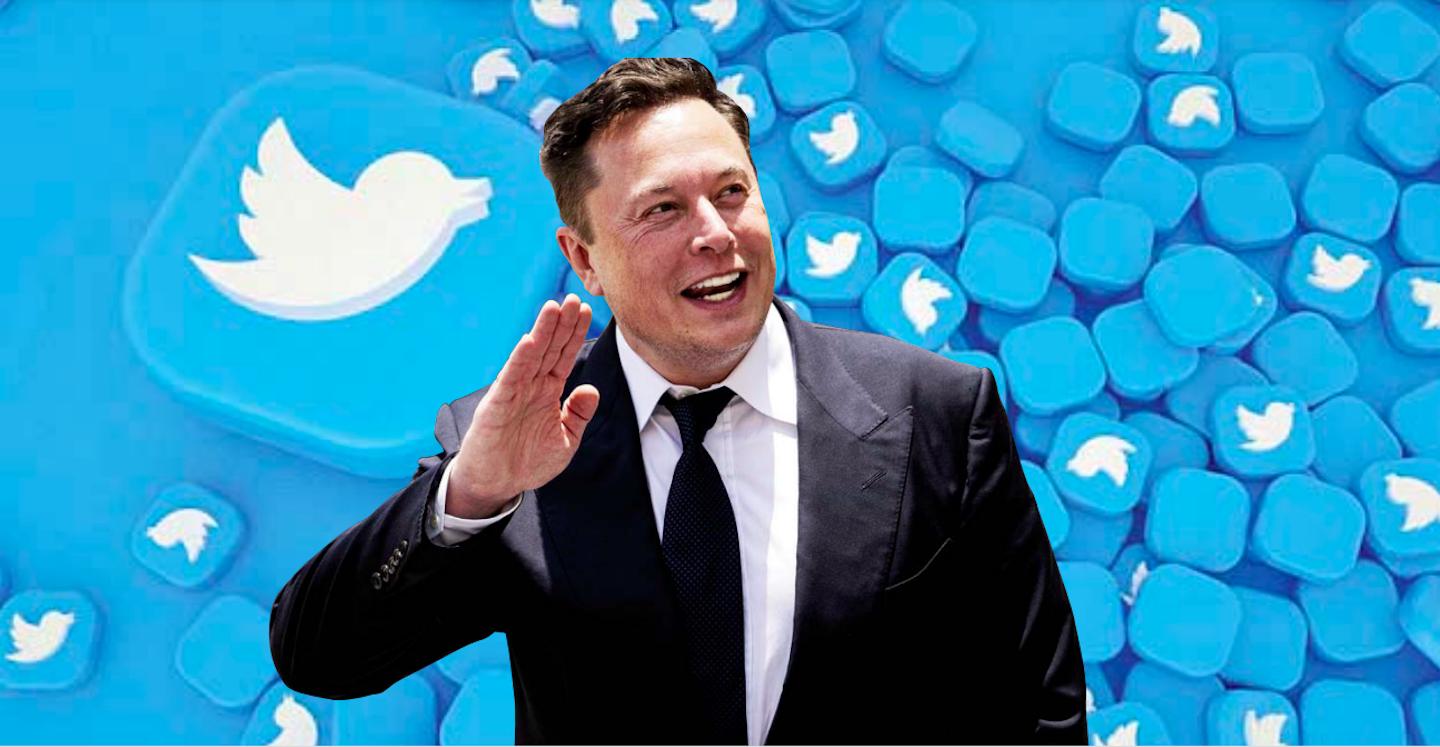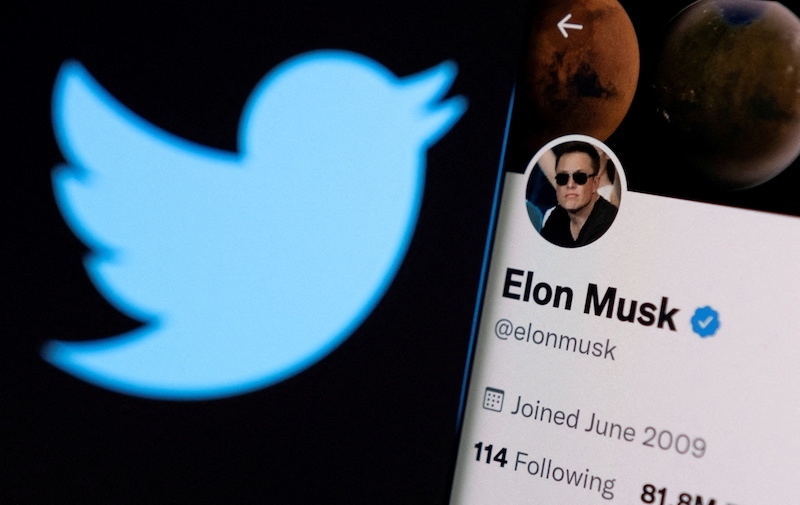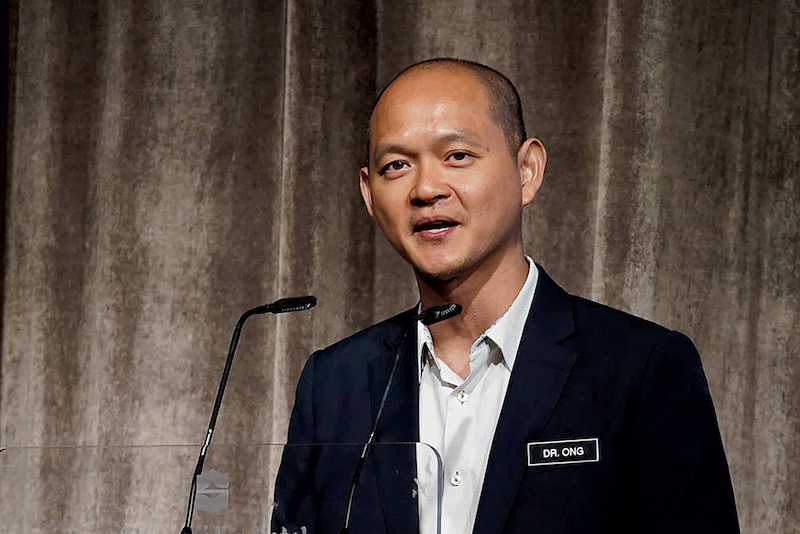
Elon Musk, the world’s richest man, successfully completed the biggest leveraged buyout in the last two decades at US$44 billion (RM191.8 billion).
After inciting discussions of proxy battles and sending many keyboards a-typing for weeks, Elon Musk, the world’s richest man, successfully completed the biggest leveraged buyout in the last two decades at US$44 billion (RM191.8 billion). How much is that, in exchange for a free app? To put things in perspective, Amazon.com founder and executive chairman Jeff Bezos bought The Washington Post in 2013 for US$250 million — which would mean the Musk-Twitter deal took 176 Washington Posts to take the world’s 15th most popular social networking site private under his leadership. The takeover cost is astronomical even for a space magnate, considering Twitter does not even crack the top 10 after being surpassed by relative newcomers such as TikTok.
A tweet may not attract the same eyeballs as illusionist Zach King’s Harry Potter magical mischief — which racked up 2.2 billion views, making it the most watched video on the social networking service created by China company ByteDance — but Twitter is a dichotomy of ideals. On the same platform, you can appraise former US president Barack Obama’s musical taste based on his summer playlist just as much as his way of encouraging people to voice their opinion on the American Jobs Act. Even if the social media platform has descended into a podium from which to troll public discourse, it remains a free space where up-to-date commentary on world events can be invaluable. Perhaps it is this tantalising morsel of unfettered digital freedom that courted the interest of Musk, who proclaims himself a “free speech absolutist”.
musk_twitter.jpeg

“I think it’s very important for there to be an inclusive arena for free speech. Twitter has become kind of the de facto town square, so it’s just really important that people have both the reality and the perception that they are able to speak freely within the bounds of the law,” Musk said in an interview at the TED 2022 Conference in Vancouver before the deal had been sealed. He added, “It’s important to the function of democracy, it’s important to the function of the United States as a free country — and many other countries — and actually to help freedom in the world more broadly than the US.”
Musk’s vision sounds grand, except that there is no unfettered free speech in the public sphere even when it is protected as a constitutional right in the US. Twitter has continued to craft rules and invest in technology to detect violent threats, harassment, inflammatory posts and misinformation that violate policies, especially after evidence of Russia tampering with the 2016 US presidential election emerged. And there was also, well, Donald Trump. So, the big question is, how far will Musk ratchet back these systems with his laissez-faire posturing of free speech when everyone from Obama to European Union lawmakers are holding social media platforms to tougher standards? Should we be worried?
It depends on who you ask. Supporters such as strategist Thomas Hayes, chair of Great Hill Capital, claimed that the move was “the best thing that’s ever happened” to Twitter, as it will generate more value for users while clearing out bots and spams crowding the social media platform that had become an “abandoned building with graffiti in a bad neighbourhood”. A takeover also probably warrants a makeover: Musk promises new features (like the long-awaited edit button to fix typos) and transparency as he opens up Twitter’s algorithm to public review so you can understand how its decisions are made.
mediha_mahmood_executive_director_of_the_content_forum_profile.jpg

The fortuitous acquisition is also a boon to Musk’s empire, as it provides him with newfound political leverage — as only a billionaire can acquire — that will benefit his other businesses. It is very likely that he will gain credibility among politicians as well as his high-profile rivals, particularly if Twitter continues to pursue its international expansion plans.
Moving on to the detractors, a loud voice came from fellow billionaire Bezos, who responded to Musk’s call for free speech by posing the question: “Did the Chinese government just gain a bit of leverage over the town square?” The confrontation stemmed from his concern that China, the second-biggest market for Tesla vehicles, will lean on Musk’s automotive business to quell criticism of Beijing on Twitter. Digital watchdogs around the world also echoed the sentiment, with the fear that handing absolute power to a single person will deter the growth of democracy.
What are Malaysians saying back home? Mediha Mahmood, executive director of Malaysian Communications and Multimedia Commission (MCMC)’s Content Forum, an independent organisation that oversees and promotes self-regulation of content, claims that Musk’s “inclusive arena of free speech” will imply less regulation by the company. “We believe [self-regulation] is the best way for people to exercise their right to freedom of speech while ensuring that each content platform remains a safe one for all. In this sense, as long as Twitter continues to offer self-regulation tools such as the ‘unfollow’, ‘mute’, ‘block’ and ‘report’ functions, it will likely continue to be a compelling social media platform.”
Member of Parliament for Bangi Dr Ong Kian Ming, an avid Twitter user who chronicles his political activities to encourage discourse among his 83,600 followers, looks forward to the platform’s innovative capabilities. However, there are cons we should be wary of. Ong says: “[The acquisition] will peel back some of the controls that Twitter has already put in to mitigate some of the worst excesses of social media, such as hate speech. Although the focus will very much be on the actions taken by US and EU regulators. Those of us in Asia may have to just ‘watch this space’, given the smaller market imprint of Twitter in Asia-Pacific.”
ong_kian_ming.jpg

At the time of writing, there is little to suggest that Musk’s entry into the social media game will help advance any of the aforementioned reforms. In fact, netizens still see his desire to purchase Twitter as a form of control to correct what he perceives as media bias towards him and his companies. Whether the Tesla head honcho is using the social media platform as a tool for favours or score-setting, he will need to be held responsible for the brand’s influence, which has outgrown its user base of 330 million. After all, this is the man who can easily own a sandbox with a tap of a finger.
This article first appeared on May 9, 2022 in The Edge Malaysia.


